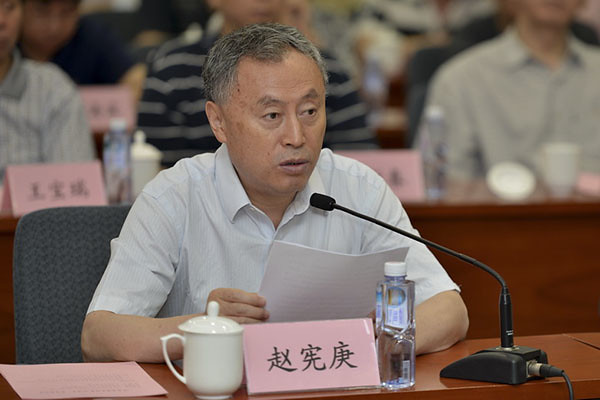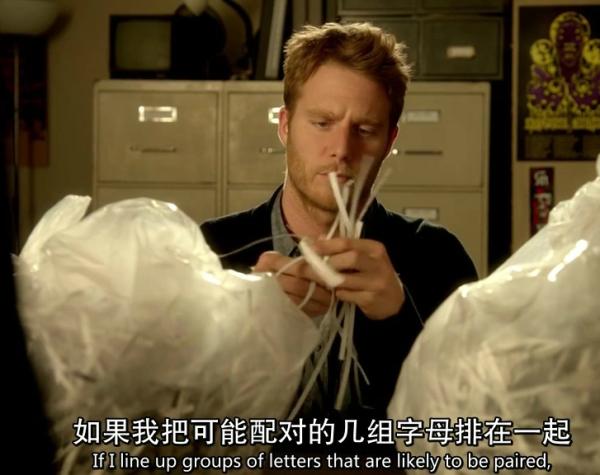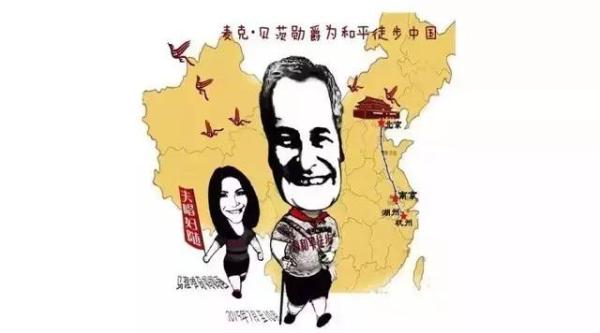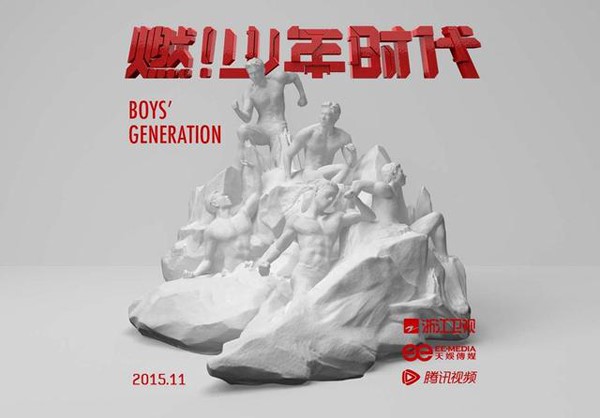
Decline is mainly in the areas of political, economic, but the United States military, science and technology and education are in the world. China Visual information
On October 30, Fudan University "of the 21st century United States and the world--China United States Association 2015 annual meeting and Fudan University, United States Research Center's 30 anniversary Symposium". At the opening ceremony, former Vice Minister of the Ministry of Foreign Affairs, Deputy Director of the overseas Chinese Affairs Office of the State Council he Yafei around "the 21st century United States and the world", keynote speech.
He recalled that 21st century has over the past 15 years, said geo-political map of the world is changing, the world multipolarization and economic globalization, rapid development of emerging countries such as China, for hundreds of years to make the international order for the first time common governance governance from the West to the East and West. Against this historical background, he thinks the right assessment of United States strategic direction to answer three questions: the United States is declining? What United States strategic contraction and adjustment? United States strategic adjustments to affect China?
United States is fading?
He Yafei analysis, from the perspective of history and reality both latitude, United States what absolute power does not change, but the United States ability to control the world in decline. The famous political scientist Joseph Nye (Joseph Nye) said that United States hegemony in the world through two challenges: "transfer of power" and "diffusion of power". "Power shift" the shift in power from West to East, from Europe to Asia, of which the most important sign is the rapid development of China, United States decline in relative control. "Diffusion of power" refers to the participant within the context of global governance have increased, the voice of developing countries has increased, "many things are not United States that count. "
But he also said the United States is not comprehensive and absolute decline. The decline mainly in the areas of political, economic, but the United States military, science and technology and education are in the world. "Even if the decline experienced for a long time. Now, half of the top 500 transnational enterprises in the United States. In addition not says United States means the decline in China, or China means the United States declined. "
He considered, major decline in the political and economic fields, but the United States military, science, technology and education and the world. What blunders? First foreign strategy overemphasis on unilateralism, relying on the military force and the League to solve international problems, when for a long time the ' world police '.
He said when the world police costs are high: after the financial crisis of 2008 Americans opposed United States military intervention in conflicts in other places, in other words United States public opinion for military action and economic weakening. "After the end of the cold war United States had a chance to make big strategic adjustments, but United States foreign policy ' inertia ', losing the strategic adjustment of the historical opportunity, strengthening military alliance relationship. "The results of this policy are, United States in looking for the opponent. "Found in China. This way of thinking can be self-fulfilling process. "
Second mistake was United States military alliance has taken a lot of security on security obligations. "Realistically, United States probably because of kidnapping of the Alliance being dragged into a conflict of powers, Japan and the Philippines are all examples. "
He Yafei also believed that United States was back in the international relations, "the burden of democracy": "because the United States, I am sure that democracy is United States core of soft power, and promotion. This is the ideal approach in international relations, also accelerated the United States collapse of the geopolitical order, is the best example in the Middle East. "He regrets, United States has been insisting human rights are higher than sovereignty, conventional means such as taking regime change in the Middle East, results as Kissinger said recently in the Wall Street Journal--Yemen, and Syria, and Iraq and other countries become failed States, ISIS rise of terrorism in the Middle East.
Third mistake was United States inner powers decline "syndrome of fear and anxiety". He Yafei said the United States wanted to maintain hegemony status, but militarily powerful countries need to be adjusted according to the changing situation and strategy, or may be in conflict trap and other powers. "The United States now still wants to be a world leader, such ambitious ideas to the United States's strength has been misplaced, it is difficult to avoid errors. "
See United States strategic shrinkage?
Joseph Nye said: "shrink" is not isolationism, but adjusting the means of strategic objectives. He said United States strategic shrinkage is overly involved in the strategic expansion of overseas military operations, there is a historical law, also have profound international background. China peace researcher Zhang zhongli United States
What factors lead to United States strategic adjustment and contraction? In the interpretation of He Yafei, first faced related to the general crisis of capitalism and the West. President XI Jinping had said the world economy still in a deep adjustment, low growth, low inflation, low demand and high unemployment, high debt, high bubble risk intertwined. "Speaking is the world economic problems, in fact, this is also United States and Western countries of political and social issues. The basic contradictions of capitalism led to the 2008 financial crisis is not resolved, is the slow economic recovery lingyu crisis of the capitalist system. "
Second, the United States global force, military intervention will have decreased significantly. "This is a United States strategy an important sign of contraction. "He Yafei said the United States synchronized contraction and adjustment of the strategy, strategic focus from the Middle East, two in Europe and towards the sea, the main direction is" Asia-Pacific rebalancing. "
"Of course ' rebalance the Asia Pacific ' adjustment is not completely negative and worth thinking about. Strategic adjustment is not a strategy to give up, which is the Middle East, Europe, Asia-Pacific focus of these three strategic sectors have changed, but not give up a plate. "Interpretation of He Yafei said that United States synchronized adjustments into the hands, on the one hand increase military input, on the other hand allies (particularly in Japan) to contain China.
He Yafei, United States strategic adjustments or contraction is not an expedient measure. "In the long run, I think the United States will increase pressure on China's strategic and military pressure. Sino-US differences arising from the strategic orientation of the two countries will also expand, some contradictions and even worsen, it is hard to avoid. "
"But on the other hand we have seen in the world economy, terrorism, climate change and other global areas, common interests increased. In these areas, is the convergence of strategic orientation. "
"So the United States will not give up power, strategies or shrinks only adjusted United States foreign policy and a change in policy. "He Yafei said," I was that sentence, United States take some time to cultivate in order to focus on China and other emerging powers. "
United States impact of strategic adjustment of China
He believes that United States strategy and China's development is synchronous, strategic interactive will reshape the geopolitical and economic landscape of the Asia-Pacific region. "Are challenges for both. There are two issues we need to think about, one is the United States what to do, and second, what should we do. "
He said United States strategic shrinkage means that in other parts of the world United States must adopt a cautious foreign policy, to avoid unnecessary and risky military operations. But the Asia-Pacific region as is the United States the major direction and restraint contrasted in other regions. "The United States ' Asia-Pacific rebalancing ' resolve has been, but what to do next is hard to determine, because there are so many constraints. "
"The United States the challenges facing the strategic adjustment in Asia is how to deal with its relations with China. As a core area of strategic deployment, United States shrink does not subjectively for the Asia-Pacific, but such a strategy will still be restricted by domestic and international factors. "
What are the factors? He considered mainly in the past more than 10 years of United States foreign policy overreach leads United States fighting two wars, strategic burden now facing challenges of three plates, its ambition. "This case United States practice is twofold. First of all, to continue to strengthen relations with allies and military strategic force gradually adjusting to the Western Pacific. The Western Pacific and the South China Sea is the United States in the eyes of China and heart of the game. "
Second is a balanced approach. "China needs to go. According to the theory of international relations, China and the United States, and Japan between the partial transfer of power is normal, but the United States is very painful. Because it believed that the Asia-Pacific region is to determine the United States can be when the world hegemony of the territory in the 21st century. "
In order to maintain this balance, in addition to United States itself into, and more with the help of its allies. He says United States Japan even has "Tiger". "We have an ambivalence surrounding countries, the economic tailwind will take on China, the security on the United States to balance China. This, of course, for the United States provide an opportunity to contain China. "
In addition, he believes that there is an international dimension to contain. "The rise of emerging powers more than one country, China. On the other hand China offensive is not strong in the international order. "Taken together these factors as China's strong, United States" Asia-Pacific rebalancing, "He Yafei's estimate after ten years or 20 years could reach the point of zero, that is, the relative balance of power between China and stage. After the United States Asia-Pacific strategy will be like, now is still in doubt. "Most importantly, we hope that the United States and its opponents or potential opponents to reach strategic understanding ', to achieve strategic adjustment. "
What can China do? He Yafei quoted XI Jinping, a new type of relations between China and that "no conflict, no confrontation, mutual respect, cooperation and win-win." "I think the most important thing is the first six words ' without confrontation and conflict ', which is the core to address issues of war and peace. How to do? Requires both countries to sit down and reach strategic understanding ' between an asymmetrical but relatively stable strategic balance. "
Secondly, he Yafei think Asia-Pacific in order to establish effective control mechanisms, China and to establish effective control mechanisms. "Direct confrontation between the US and China is unlikely, after all, there are no boundaries, there are nuclear weapons restrictions. But the United States security alliance relationships with many countries and regions, United States possible in order not to lose credibility as a leader, and the confrontation with China. "
He Yafei also stressed the economic pie bigger. "Close economic relationship did not completely rule out the possibility of conflict, but will increase the buffer, you'll make them ' think carefully '. "
Finally he sighs, United States and China in the Asia-Pacific strategic choice and strategic interaction will determine in 21st century strategic direction. "Although we have a lot of uncertainties, but as long as the two sides could clear strategic objectives, strategic understanding reached, the 21st century of peace and stability in the Asia-Pacific region should be able to achieve. "






























